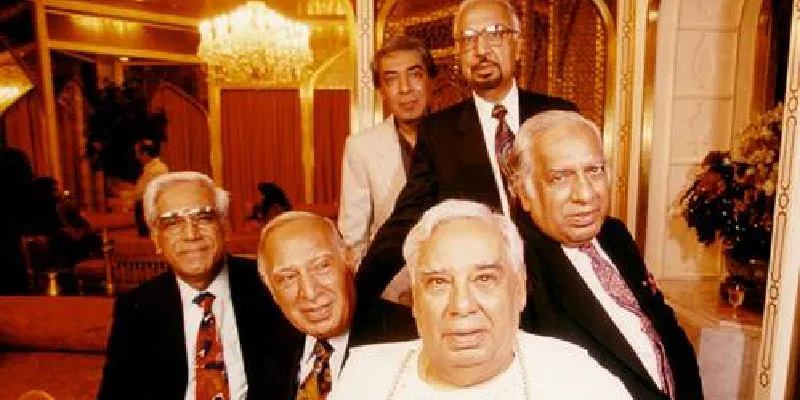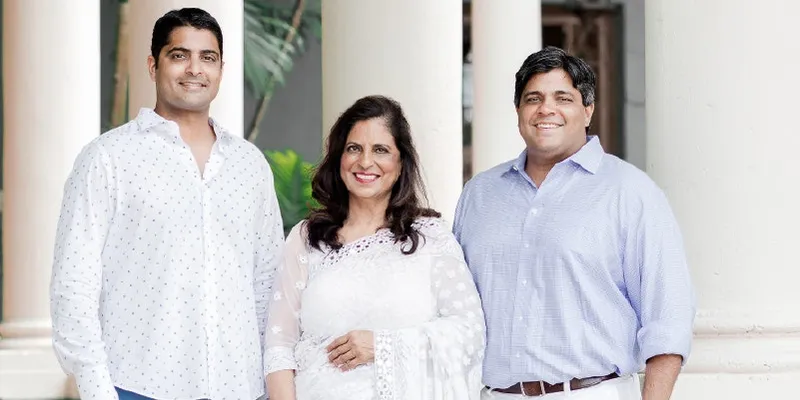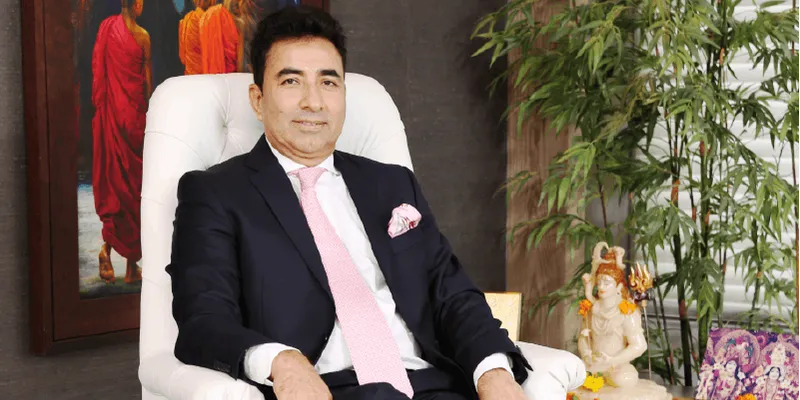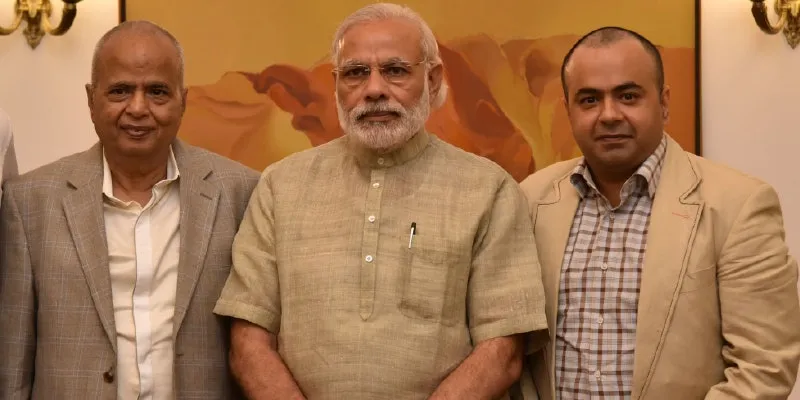Top seven success secrets of doing business the Sindhi way
Whether it is the Gujarati 'rokda', the Baniya 'dhanda', the Sindhi 'paiso', or the tech startup’s funding, every business community has its unique way of looking at how to make money.
Whether it is the Gujarati rokda, the Baniya dhanda, the Sindhi paiso, or the tech startup’s funding, every business community has its unique way of looking at how to make money.
Interestingly, with their sharp sixth sense to sniff out opportunity, most of the Indian business communities throw up fascinating rags to riches stories that can serve as a mirror to the new-age internet businesses of today.
Though they are often overshadowed by their other enterprising competitors like the Baniyas and the Gujaratis, the Sindhis particularly stand out for their chutzpah.
“Sindh witnessed numerous invasions for centuries, but Sindhis not only survived them but also thrived despite them...The Partition of 1947 was catastrophic for the community. We became stateless as we had to migrate from our ancient homeland. Our never-say-die attitude helped us embrace the numerous lands that we migrated to. We built ourselves from scratch to regain our prosperity by being true to our business heritage,” writes industrialist Ashok Hinduja, Chairman of the Hinduja Group of Companies, in a foreword in the book, Paiso, How Sindhis do Business, by Maya Bathija.
In her book, Maya tells the stories of five Sindhi business families and how they have built their empires across the globe.
Through the stories of Gary and David Harilela of the Hong Kong-based Harilela Group, Ramola Motwani of real estate investment and development company Merrimac Ventures based in the US, Harish Fabiani, one of the early angel investors and Chairman of Americorp Ventures and India Land, Dilip Lakhi of the Lakhi Group, one of the biggest diamond suppliers in the country, and real estate Embassy Group’s Jitendra Virwani, Maya gives a crash course of doing business the Sindhi way.
In a chat with the author, I ask her what the secret of the Sindhi way of doing business is. And she did not disappoint.
Here are the seven top business secrets of the Sindhis.
When money-minded is good
“The early perception of the Sindhis, who had moved to India and lived in Bombay in the post-Partition days, was that they would do almost anything to make even a small amount of money,” says Maya.
For instance, if shops around them sold sugar for Re 1 per kg in bags of 50 kg, Sindhi businessmen would buy the same and sell them at 99 paise a kg. Their price being 1 paise cheaper and thus sold hundreds of bags making a loss of 50 paise per 50 kg bag.
This made people wonder why would somebody work so hard to lose money. But what they did not realise was that every time the Sindhi sold an empty bag, he made a net profit of 50 paise on every 50 kg bag of sugar.
They believed in sacrificing profit for large turnovers.
Interestingly, with the exception of the Seths of Karachi, the Sindhiworkis of Hyderabad, and the Shroffs of Shikarpur, most Sindhis were local shopkeepers and moneylenders. They specialised in hundi, or bill of discount, with Tamil Nadu and Karnataka being some of the main banking hubs.
They even became financiers for industries and filmmaking in Bombay. The rest went on to become traders, cloth merchants, and businessmen in other countries.
Never say die attitude
From the stories of families covered in this book, one will see that they continued in their race towards making the big bucks, not letting their failures dictate their next step.
“They are constantly moving forward despite all hardships and geographical factors,” says Maya. She gives the example of the Harilela family.

Harilela Family
One of the first Sindhi families to settle in Hong Kong in the early 20th century, the Harilelas braved wars, recessions, and depressions of the 1930s, coming out winners in the end. “The family never used the immigrant card to succeed. They instead used their courage and patience, laced with an equal amount of determination, proving themselves over and over again," Maya writes in the book.
They started as hawkers and office boys and went on to open clothes stores to tailoring outfits to supply to the army. They made their first million in 1950. They soon moved on to real estate and hotels.
Today, he Harilelas is a conglomerate that includes hotels, travel agencies, and real estate, and has a seat on the Hong Kong Stock Exchange.
Buy, not rent
The fact that Sindhis buy their properties and not rent them, has made many a family in the community rich today.
This learning drilled down to them through generations has helped them build on their monies and grow their businesses further.
Merrimac Ventures is a real estate company located in Fort Lauderdale (Florida, US) and is headed by Ramola Motwani, assisted by her two sons. “They made instant decisions and dreamt big, working hard and relentlessly to realise those dreams,” says Maya.
The Motwanis played a significant role in the development of Fort Lauderdale over the years and are known for buying, expanding, and building properties that have increased tourism in the area.

Ramola Motwani with her sons.
However, the family had to brave adversities like the real estate bust in this beachfront town as well as the death of Ramola’s husband. Maya writes,
“Many businesses were shutting down and people were moving away. However, the challenges brought out the Sindhi in her. She saw opportunities where there seemed none, and she did the exact opposite of what was expected of her as a single mother of two young children."
Confidence backed by hard work
Maya, herself a Sindhi, says that whether they were educated or not, the average Sindhi transitions from small business operations to mega developmental projects with ease because of their confidence and hardworking nature.
Chairman and MD of the Embassy Group Jitendra Virwani’s success story is like a textbook case study, according to Maya. He built his business step by step with detailed planning and strategy.
Born and raised in Mumbai, Jitu (as Maya refers to him in the book) was considerably influenced by the memory of his mother asking his uncle for money to run their home in times of financial stress. “At that early age, he decided he would never be helpless or live in fear of an unknown destiny.”

Jitendra Virwani
Since pocket money was a source of great worry for a young Jitu, he relied on his own ingenuity to earn him extra bucks.
During the Gulf War, Bangalore saw a number of Iraqi and Iranian students selling their possessions and other wares to make some money. Jitu started a regular trade, buying pistachios from them and selling at Sindhi General Stores on Commercial Street. He would buy at Rs 65 a kg, and sell at Rs 100 a kg to the storekeeper, who would in turn sell it at Rs 180 a kg.
However, slowly Jitu did away with the middlemen too, and started selling directly to his mother’s kitty group giving them the middleman’s discount.
The Sindhi has been trained from a young age to treat accounts as a mainstay in their lives, thus furthering their understanding of the business world. Says Maya,
“They understand interest shared, interest earned, and interest barred. Computer-like calculations fill their minds at all times. They shadow their fathers at an early age, thus learning from the school of life.”
Community pride
The Sindhis succeeded in business in whichever part of the world they inhabit because of their immense pride in being one with the local community. “They give back in kind to the countries they make their millions in thus furthering their business aspects,” says Maya.
All the five families featured in the book went on to donate generously and their philanthropic activities helped them establish their name in the global communities.
Always look for the next big thing

Harish Fabiani
Maya believes that many Sindhis use their intelligence in ways that few would even imagine and thus get out of situations that might render them bankrupt.
Harish Fabiani broke all rules by becoming one of India’s first-ever angel investors. Writes Maya, “Unlike a family-run Sindhi business, his company takes on a very professional approach to every business it is invested in.”
Harish left India in 1983 and he and his older brother successfully ran an electronics business and later ventured into real estate in Spain.
Today, Harish is the Chairman of the Madrid-headquartered Americorp Group, which, through its private and public equity arms owns financial interests in diverse businesses in the fields of technology, media, real estate, and other sectors both in Europe and India.
Harish believes India will be among the biggest players in the tech space in the years to come. “It is said that 99 grams of hard work and one gram of luck is needed for success,” says Harish.
Make your own rules

Dilip Kumar Lakhi with is son and PM Modi.
The Sindhis abide by their own rules and bend only if it suits them, according to Maya. They fit in but they hold their own. For most of them, their word is their bond.
The Lakhi Group has a long-standing history in the Indian gem and jewellery industry. An otherwise low-profile individual, the group’s Chairman Dilip Kumar Lakhi came into the limelight when he became the highest individual taxpayer in India in 2003, and again when he bought the famous Cadbury House in Mumbai.
Also read: Food for thought: meet the Bengaluru-based small businesses that are capturing local tastebuds







